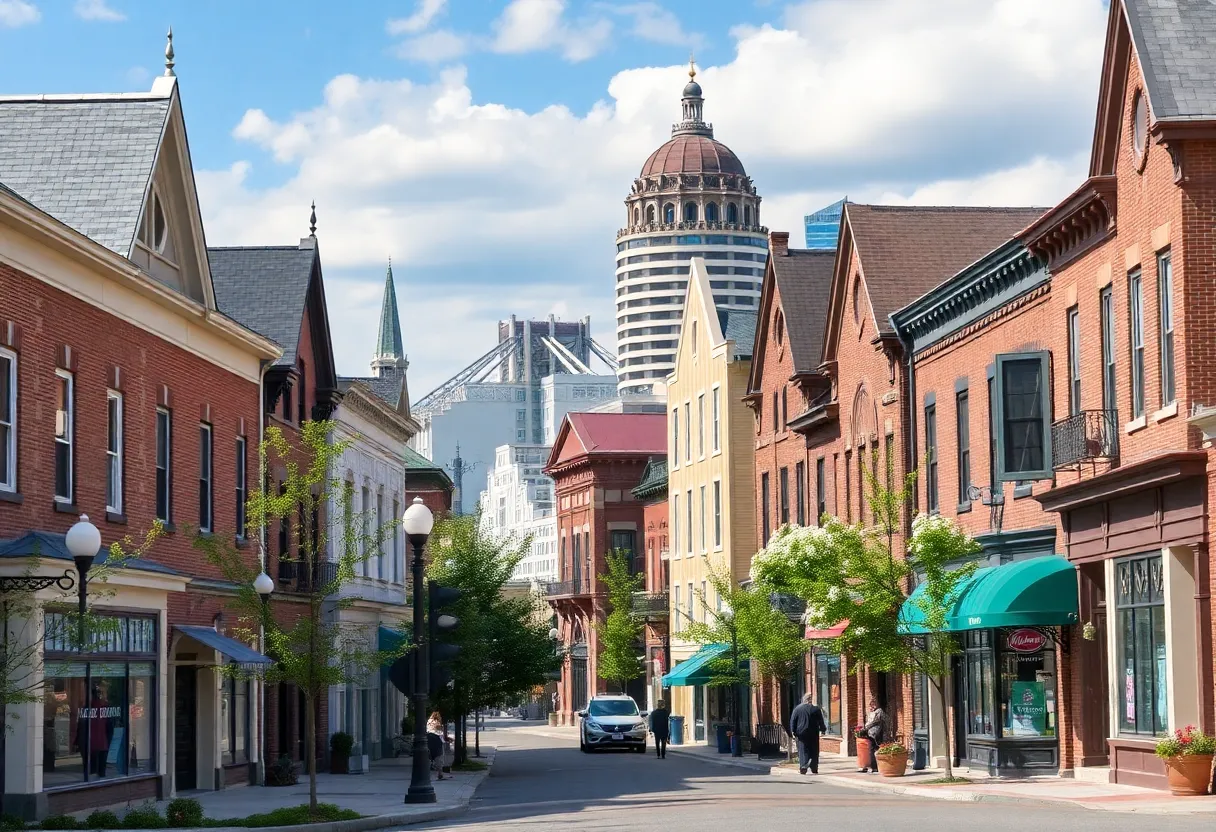News Summary
Indianapolis employers are facing a hefty new annual fee of $100,000 for H-1B visa petitions due to a recent presidential proclamation. This fee may significantly impact hiring practices, causing uncertainty for businesses that rely on skilled foreign workers. Legal challenges are arising against the new fee, and employers are pausing recruitment until they obtain clarification on its implications. Meanwhile, alternative visa options may provide relief as companies navigate these changes in the employment landscape.
Indianapolis Faces New H-1B Visa Fee Increase Amid Presidential Proclamation
Indianapolis, IN — Employers across Indiana are confronting a significant increase in the cost of hiring foreign highly skilled workers as a new federal fee for H-1B visas has been instituted by a presidential proclamation issued on September 19. This move introduces a $100,000 annual fee for each H-1B petition, threatening to alter hiring practices and create financial uncertainty for many businesses in the state.
Details of the New Fee and Its Impact on Employers
The new annual fee of $100,000 is expected to sharply elevate the expenses associated with sponsoring foreign workers under the H-1B program, which has been a vital pathway since 1990 for companies in engineering, technology, research, and healthcare sectors. The fee’s implementation is set to complicate workforce planning for employers, particularly those who depend heavily on international talent.
Additionally, the proclamation introduces a $1 million visa option for wealthy applicants, offering an expedited pathway to U.S. citizenship. However, this option raises questions among businesses about how it will affect the overall visa landscape and eligibility criteria.
Uncertainty and Challenges for Indiana Employers
Many Indiana universities, hospital systems, and corporations have temporarily paused their recruitment efforts involving H-1B visas, awaiting clarification on what constitutes a “new petition” and which applicants will be affected by the fee. This ambiguity hampers their ability to plan staffing and international recruitment strategies effectively.
The federal government has yet to establish a formal mechanism to collect the new fee, further complicating planning for employers who traditionally rely on predictable processes to sponsor foreign workers. The lack of a clear collection system adds to the ongoing uncertainty around the policy’s implementation.
Legal Challenges and Potential Court Rulings
The fee has faced legal opposition from various business groups, health care providers, and academic organizations, including the U.S. Chamber of Commerce. Multiple lawsuits are currently pending against the new fee, with critics arguing that it may violate federal laws and exceed the executive authority of the president.
Legal experts suggest that the fee might not survive court challenges, but regardless of legal outcomes, the hiring process has already slowed among employers due to uncertainty about future costs and policies.
Short- and Long-Term Outlook for Indiana Companies
The proclamation is set to expire in 2026 unless extended by future presidential action, leaving businesses in a state of uncertainty about long-term workforce planning. During the 2024 H-1B cap season — expected to ramp up in spring 2026 — the impact of the fee is anticipated to be most pronounced.
In 2024, Indiana companies submitted nearly 2,900 H-1B petitions, with significant sponsorships coming from major employers such as Cummins, Eli Lilly, Purdue University, and Infosys. Larger corporations may absorb the costs more easily but will likely be more selective about which positions justify the expense. Smaller and midsize companies, however, could face substantial difficulty in hiring international talent due to the prohibitive cost.
Alternative Visa Options and Future Federal Rules
Employers are advised to consider alternative visa pathways to mitigate the impact of the new fee, such as L-1, TN, E-3, O-1, and cap-exempt H-1B categories. There is also ongoing potential for changes to wage requirements and visa allocations pursuant to additional federal regulations, which could further impact the employment landscape.
Questions remain regarding whether the $100,000 fee is refundable if a petition is not selected in the lottery process, adding another layer of uncertainty to the hiring process for Indiana businesses.
Summary
The recent presidential proclamation introduces a substantial and contentious fee increase for sponsoring H-1B workers, impacting Indiana’s business ecosystem. With legal challenges ongoing and federal policy potentially changing further, companies must navigate the evolving landscape carefully, exploring alternative pathways and preparing for potential disruptions in their international hiring strategies.
Deeper Dive: News & Info About This Topic
HERE Resources
Federal Judge Investigates Deportation of Doctor with Valid Visa
Additional Resources

Author: STAFF HERE INDIANAPOLIS WRITER
The INDIANAPOLIS STAFF WRITER represents the experienced team at HEREIndianapolis.com, your go-to source for actionable local news and information in Indianapolis, Marion County, and beyond. Specializing in "news you can use," we cover essential topics like product reviews for personal and business needs, local business directories, politics, real estate trends, neighborhood insights, and state news affecting the area—with deep expertise drawn from years of dedicated reporting and strong community input, including local press releases and business updates. We deliver top reporting on high-value events such as the Indianapolis 500, Indy Jazz Fest, and the Indiana State Fair. Our coverage extends to key organizations like the Indy Chamber and Visit Indy, plus leading businesses in motorsports and healthcare that power the local economy such as Indianapolis Motor Speedway and IU Health. As part of the broader HERE network, we provide comprehensive, credible insights into Indiana's dynamic landscape.





